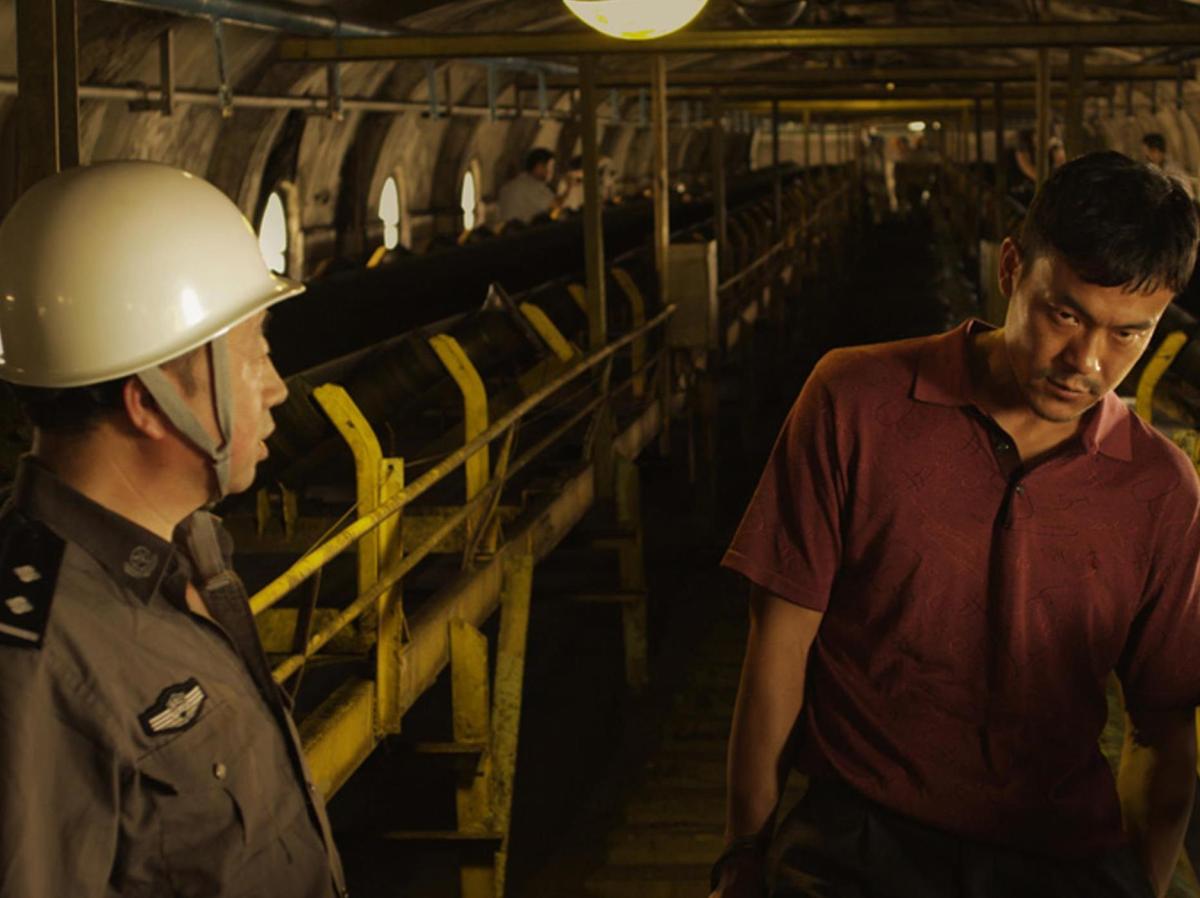Body parts appear, detached and in unusual places; comedy emanates from crime-driven scenarios, both bleak and black – and with both, the thrall of David Lynch and the work of brothers Joel and Ethan Coen remains present. The similarities keep coming, in red-lit underground parlours and in failed heroes chasing fractured femmes, as the impact of two of Diao Yi’nan’s sources of inspiration remains prominent. His Black Coal, Thin Ice (Bai ri yan huo) is as neo-noir as a grimly staged Chinese thriller can be, and as reverential and referential to its modern and classic influences; however, it is also perhaps the most transformative instance of blatantly familiar genre material.
As is the custom, murder, men, and a mysterious woman spark a strange search for truth amid tender emotions and tough circumstances. In 1999, police officer Zhang Zili (Liao Fan, Chinese Zodiac) attempts to solve a grisly case springing from limbs spread across the province, but is forced to retire as a result of incompetence and injury in the aftermath. Five years later, a similar scenario piques his interest while he works as a security guard. Linked to both the past and present circumstances is dry cleaning assistant Wu Zhizhen (Gwei Lun Mei), the looming object of Zhang’s affections and a seeming innocent laden with secrets.
The stories of recent great filmmakers combine with the finesse of masters of years gone by, with Black Coal, Thin Ice nothing if not the sum of its progenitors. Think the duplicitous drama of John Huston and the strength with set pieces of Alfred Hitchcock, as filtered through the draining reality of contemporary China. Indeed, it is the context that matters as killings recur, leads are followed, and the lure of the lady casts a spell far beyond the powers of defiance. Everything presented, both narratively and thematically, is a slice of cinema history flavoured with a been-there-seen-that attitude – but the setting and the surrounding society add depth and discoveries beyond the obvious.
What stays distinctive about Yi’nan’s third feature following Uniform and Night Train is its eye for its locale, as depicted with authentic grit and unflinching realism. This is not an exercise in polishing the flaws out of the working-class winter wonderland of Northern China, nor an effort adding sheen to the evident markers of the country’s late-stage industrial revolution. Instead, from the clumps of darkened coal shuffled along long assembly lines and the frozen expanses of frigid landscapes that both inform the film’s title and offer constant reminders of the machinations at play, to the vast spaces of urban unhappiness and claustrophobic interiors of false intimacy, it is coldness and harshness that is depicted.
With pacing that flits from action packed to slow and sombre, and with trope-fuelled characters that can easily be taken as interesting emblems or left as empty cyphers, also apparent is the presence of another cinematic authority working in the same space, for Black Coal, Thin Ice has the narratively cynical and aesthetically unadorned air of the filmmaker’s compatriot, Jia Zhangke, and his latest effort, A Touch of Sin. Though striking performances litter both offerings, perhaps the strongest correlation comes in their matching ability to spin tense crime tales as an act of scathing cultural commentary, complete with clear statements upon the isolation and disconnection of capitalism afflicting much of the nation.
As the Berlin Film Festival 2014 best film winner builds its components into a cohesive whole, detouring often and diverging from the routine with the same frequency, it offers gravitas as well as quirkiness. Far from as trite as the conventional set-up may make it seem, every element is backed up by flashes of brilliance in the execution. A scene of courtship on ice swells with sympathetic beauty and strange foreboding, and, within the same effort, absurd markers of celebration shower down on the ultimate embodiment of downfall. The contrast is, of course, in fitting with the message that makes known the fallibility of greed as well as the futile nature of resisting its imprint.
Rating: 4 out of 5 stars
Black Coal, Thin Ice (Bai ri yan huo)
Director: Yi’nan Diao
China, 2014, 106 mins
Sydney Film Festival
http://www.sff.org.au/
4 – 15 June
Actors:
Director:
Format:
Country:
Release:





